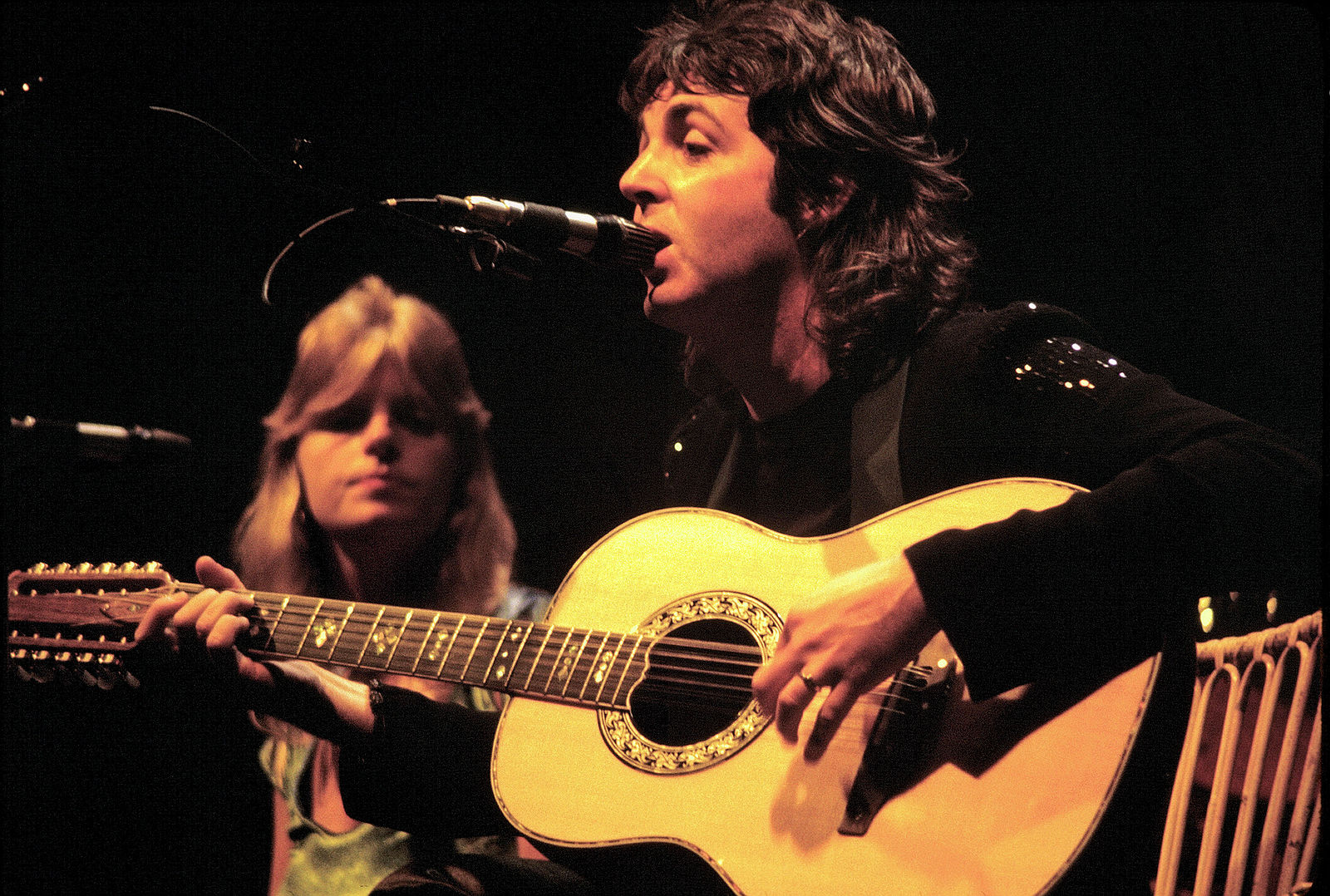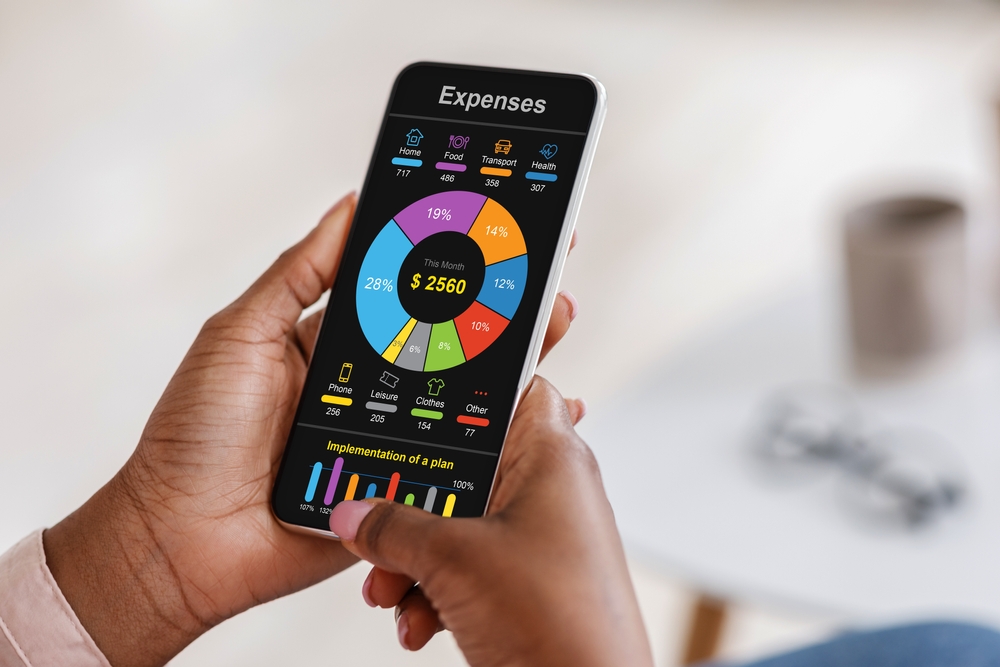Sometimes it feels like Taylor Swift is the final boss of pop culture — breaking records, owning stadiums, setting billionaire benchmarks. But behind the glitter and friendship bracelets, a few rock legends have been quietly stacking cash like it’s a full-time sport. We’re talking billion-dollar catalog sales, tour grosses that make Taylor’s Eras numbers look almost modest (almost), and decades-long money moves you never see trending on TikTok. If you thought Swifties had the market cornered on hustle, these 12 rock icons are here to remind you that sometimes old-school rules harder than new-school.
1. Paul McCartney
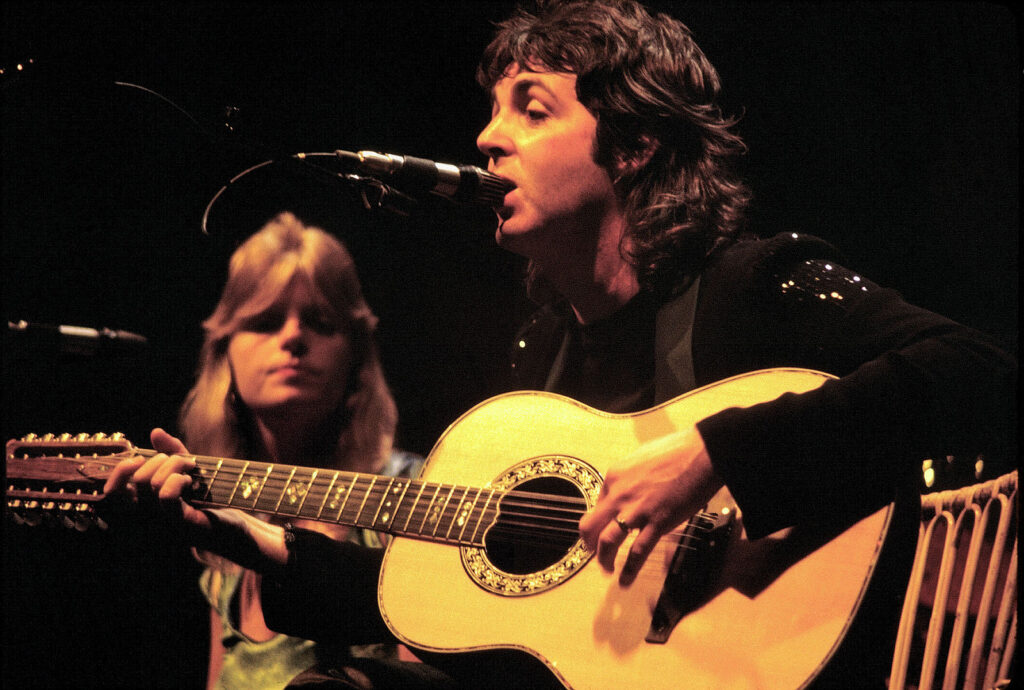
Sir Paul isn’t just Britain’s national treasure — he’s also its first billionaire musician. Fox Business reported McCartney’s combined net worth with wife Nancy Shevell is around £1 billion (about $1.27 billion), making him richer than some small countries. While Taylor just recently crossed the billionaire mark after Eras Tour mania, Paul has been casually billionaire-status since early 2024. And it’s not just Beatles royalties that keep the cash flowing — McCartney’s solo catalog, savvy real estate plays, and touring even into his 80s helped seal the deal. Beyoncé’s “Blackbird” cover on Cowboy Carter even gave McCartney’s royalties a spicy little boost this year. It’s one thing to be a pop legend for a decade; it’s another to have royalties from songs you wrote at 22 still paying out like a tech stock.
And Paul’s not slowing down anytime soon. Between book deals, art exhibitions, and licensing Beatles material for movies and documentaries, he’s finding more ways to print money without breaking a sweat. Taylor might be sprinting now, but McCartney built a marathon money machine that runs itself. Plus, let’s be real: every kid who learns guitar still plays “Let It Be” before they learn a Taylor riff. Cultural impact and financial domination? Bow down.
2. Bono

U2’s frontman doesn’t just sing about saving the world—he’s been saving for retirement like a boss. Celebrity Net Worth puts Bono’s personal fortune at a jaw-dropping $700 million. That’s before you even factor in U2’s collective earnings. His fortune isn’t just from selling out arenas; Bono’s an investment beast with stakes in private equity firms and tech companies. Remember when he bought into Facebook early on? Yeah, that little side hustle alone set him up for life. Taylor’s real estate empire is impressive, but Bono casually bought into literal world-changing tech while Taylor was still cranking out “Our Song.”
His band’s 360° Tour, the highest-grossing tour for nearly a decade, made even more bank than most entire labels. Bono has also mastered the art of making activism profitable—between Product (RED) and charity concerts, he’s boosted his reputation and brand value without sacrificing any credibility. Swifties are powerful, but U2’s reach spans multiple generations and continents. And the best part? Bono still has time to show up at every political summit looking like the coolest dad in leather pants. Power move.
3. Bruce Springsteen
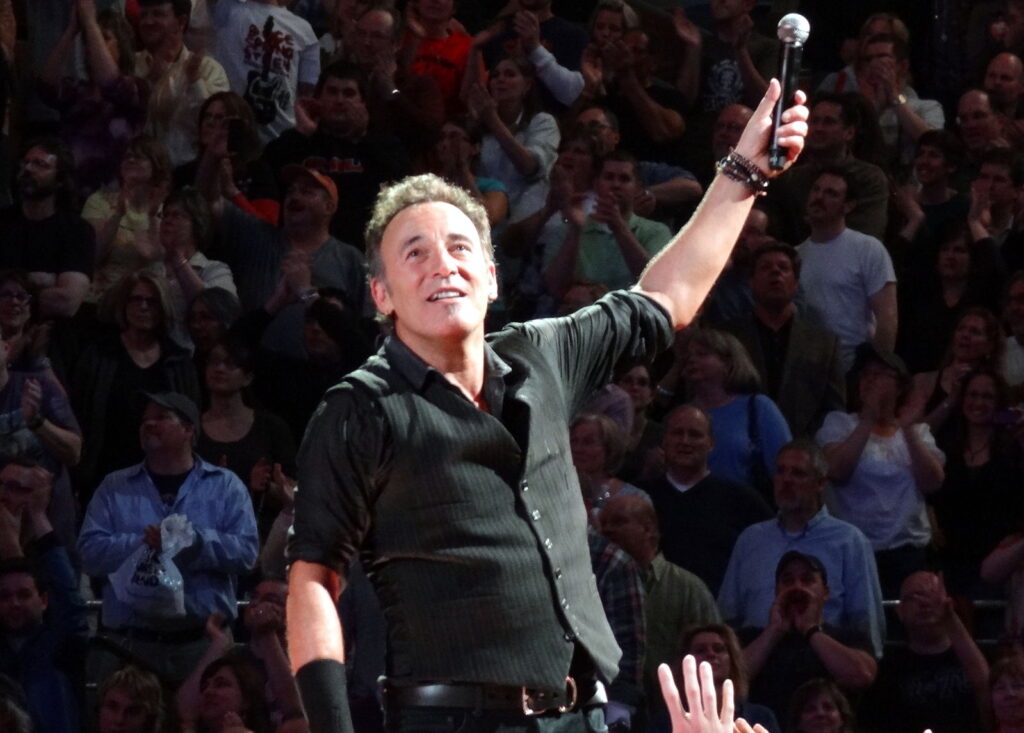
The Boss didn’t just build a career; he built a financial empire one blue-collar anthem at a time. As The Guardian pointed out, Bruce’s net worth recently tipped past $1.1 billion, thanks largely to the blockbuster sale of his catalog to Sony for around $500 million. Taylor has been strategic about owning her masters, but Springsteen skipped the drama and just cashed out. Combine that payday with decades of sold-out tours and a best-selling autobiography, and Bruce has been playing in the billionaire leagues longer than Swift has been playing stadiums.
And it’s not just nostalgia carrying him — Springsteen still routinely tops the Billboard charts with new albums and live recordings. Plus, his Broadway residency raked in tens of millions for a yearlong sit-down set. For an artist who once sang about busted factory towns, Bruce turned out to be one of the savviest businessmen in rock history. He may seem like your cool uncle with a guitar, but behind the denim jacket is a portfolio Wall Street bros would envy. Taylor is on a rocket ride now, but Bruce’s slow-burn dominance shows the real money is in the long haul.
4. Bob Dylan
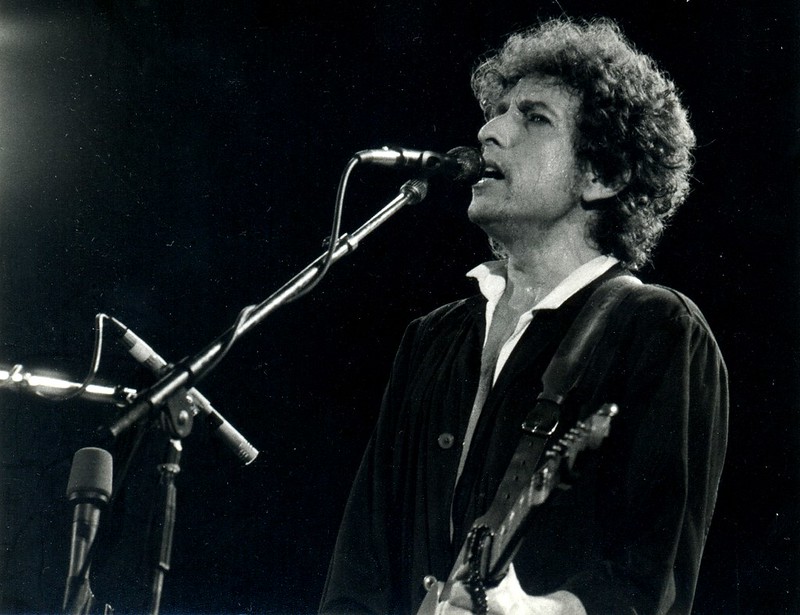
Bob Dylan proved you don’t have to be flashy to cash out big. In 2020, he sold his songwriting catalog to Universal Music for a rumored $300 million, according to Rolling Stone. That was a single transaction that dwarfed Taylor’s best year of touring and streaming combined. Dylan’s been playing the long game since he plugged in that electric guitar at Newport, and it’s paid off bigger than most Grammy wins ever could.
The kicker? He didn’t even stop there—he later sold off his master recordings separately, padding his retirement fund even more. While Taylor’s move to rerecord her albums showed power, Dylan’s “take the bag and bounce” move showed wisdom. Plus, let’s not forget the ongoing income from licensing his songs to ads, movies, and endless Boomer playlists. The man who never seemed to care about fame ended up playing the money game better than anyone.
5. Sting
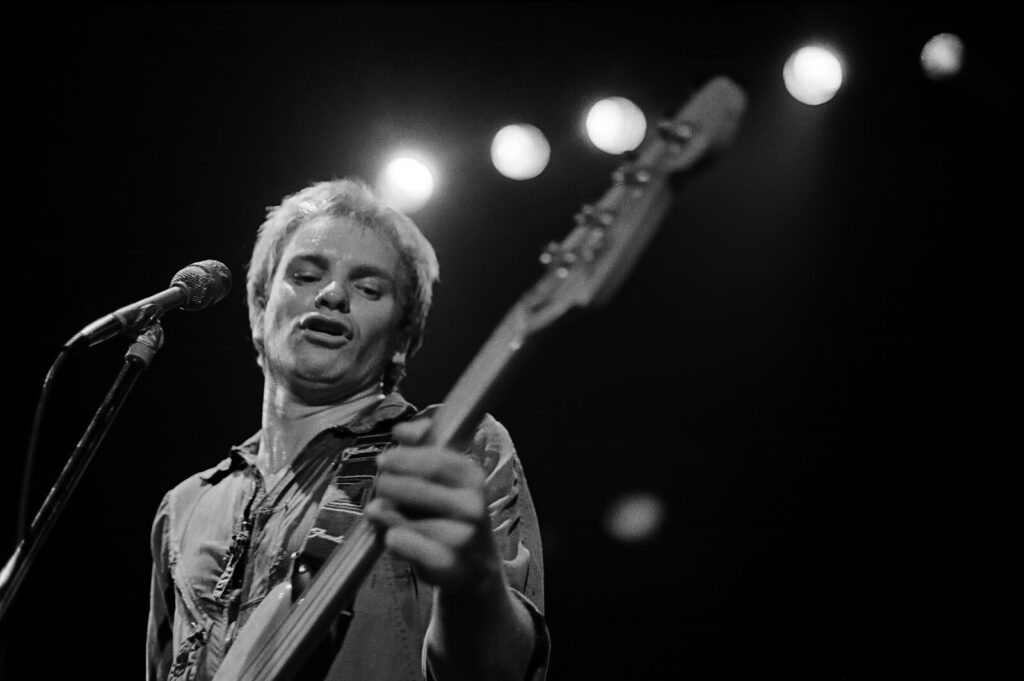
Sting isn’t just the guy who gave us “Every Breath You Take” and “Roxanne”—he’s also one of the craftiest businessmen in rock history. In 2022, he made a massive power move by selling his entire songwriting catalog—including both his solo work and his Police hits—to Universal Music Publishing Group for a jaw-dropping $300 million, according to The Guardian. That deal put him firmly in the elite tier of musicians who’ve cashed out in spectacular fashion without even needing to embark on an endless stadium tour. While Taylor Swift fought a messy battle to reclaim her masters, Sting was out here sipping wine and signing multimillion-dollar contracts with a grin. Catalog sales aren’t just about cashing in—they’re about betting on the longevity of your work, and Sting clearly knew his music would still be making money long after the last TikTok trend fizzled out. Plus, those songs aren’t just being streamed—they’re showing up in movies, TV shows, and ads, quietly stacking new dollars on top of the old ones.
But music is just the tip of Sting’s financial iceberg. He also owns real estate across the world, from a lush Tuscan vineyard to a Malibu beach compound that screams “soft rock royalty.” His investments outside music, including wine production and acting gigs, add millions more to his portfolio every year. And in a move that shows Sting isn’t just thinking about today’s money, he’s also made it clear he won’t be leaving vast inheritances to his kids—because nothing says “dad flex” like making your own kids hustle. While Taylor’s empire is dazzling and still growing, Sting’s financial kingdom was carefully built, diversified, and locked down years ago. He’s proof that true wealth in music isn’t about trending on social media—it’s about creating work that echoes (and earns) for generations.
6. The Rolling Stones
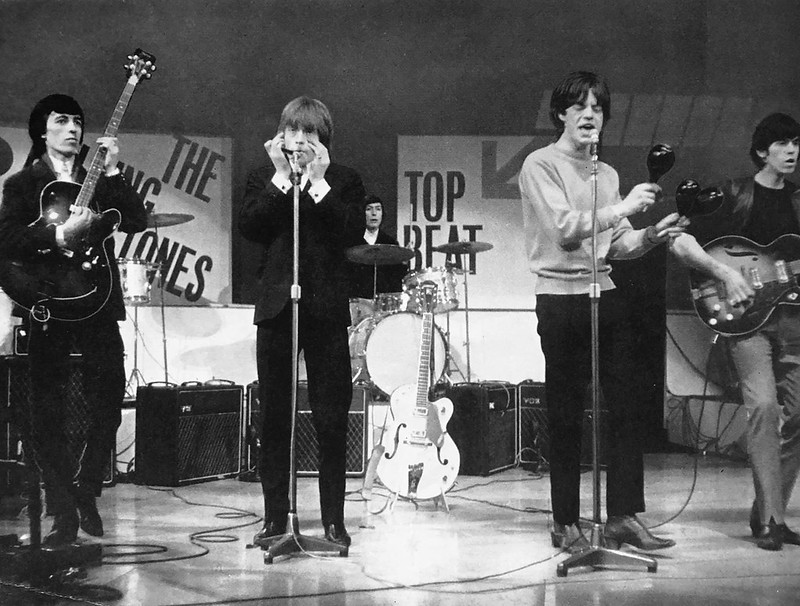
Mick Jagger didn’t just move like Jagger; he moved like a billion-dollar brand. According to Pollstar’s all-time live artist rankings, The Rolling Stones have grossed over $2.4 billion in touring revenue alone—leaving Taylor’s record-breaking $2.089 billion Eras Tour looking slightly less unbeatable. And that doesn’t even factor in their endless licensing deals, merch sales, and royalties that roll in whether they’re on tour or not. While Taylor’s concert sales are legendary, the Stones built a lifetime of headlining the globe multiple times over.
Touring is only part of it: Mick and Keith have been licensing tracks to commercials, movies, and streaming platforms for decades. They’re raking in seven figures just for letting a car commercial use “Start Me Up.” Add to that their merch game—think $200 t-shirts for a band that first charted in the ’60s—and it’s clear they were playing 4D financial chess before Taylor even sang about teardrops on her guitar. Rock may wrinkle, but money? That stays crisp.
7. Elton John
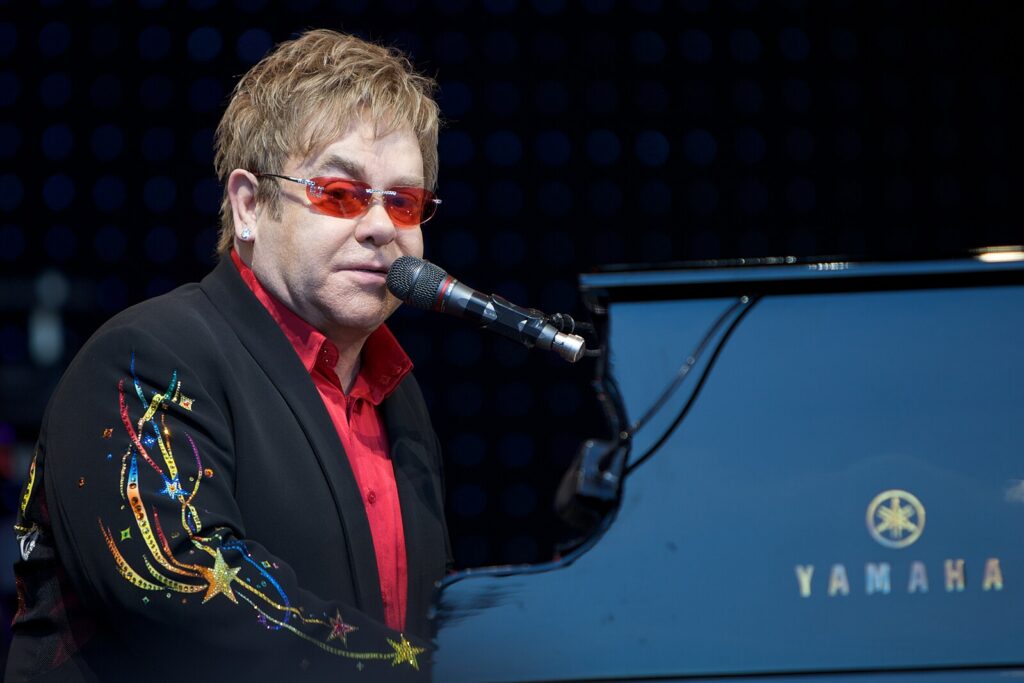
Elton John didn’t just say goodbye to the Yellow Brick Road; he sprinted down it dragging a billion-dollar bag behind him. His “Farewell Yellow Brick Road” tour alone grossed around $939 million, cementing him as one of the top-earning touring acts in history. That’s almost a billion bucks from just saying “I’m retiring… but not quite yet,” which is a flex even Taylor hasn’t pulled off. His tour was a global event, spanning five years and every continent short of Antarctica. Plus, merch sales, VIP meet-and-greets, and exclusive streaming deals only added frosting to Elton’s already loaded cake.
Even post-tour, Elton’s financial engine just keeps humming along. Biopic? Rocketman raked in $195 million globally. NFTs? Yep, he dipped a jeweled toe into that too. Meanwhile, his catalog royalties continue to snowball thanks to his timeless, karaoke-dominating hits. While Taylor has to actively tour and release albums to keep the cash flowing, Elton could literally nap for a decade and still pull six figures a day. That’s not just success; that’s financial immortality.
8. AC/DC

When AC/DC dropped Back in Black in 1980, they didn’t just create a rock masterpiece—they printed their own ATM. That album alone has sold over 50 million copies, generating more than $500 million in revenue, making it one of the top-selling albums ever. For context: that one album made more money than Taylor’s first five albums combined in their original runs. And it wasn’t just album sales—AC/DC built a touring empire fueled by Angus Young’s manic energy and those fist-pumping anthems.
Over the years, licensing deals have kept their songs everywhere, from car commercials to blockbuster movie trailers. “Thunderstruck” alone could probably fund a small country at this point. Taylor’s impact is undeniable, but AC/DC turned sweaty arena tours into a decades-long global business without a TikTok account in sight. Their music still powers gyms, football games, and rebellious teenagers’ bedrooms around the world. Rock might seem niche compared to pop these days, but AC/DC proved that when you hit big enough, you hit forever.
9. Metallica
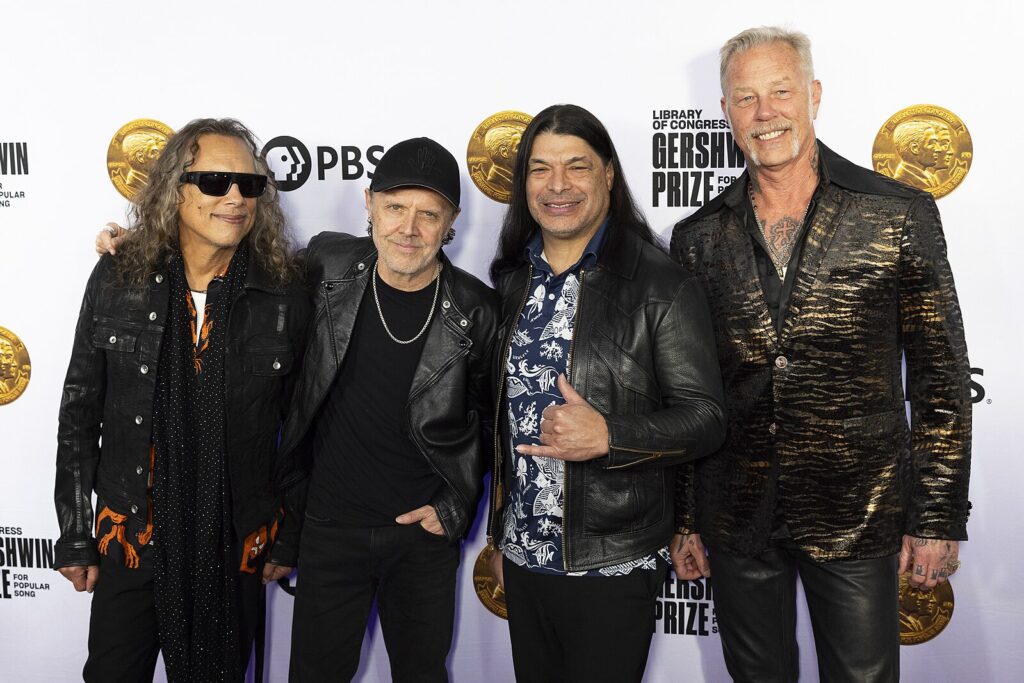
Metallica didn’t just master the metal genre—they mastered their own masters, literally. In 2012, they launched Blackened Recordings and gained full control of their music catalog, giving them a revenue stream most artists can only dream about. Reissuing The Black Album and other deluxe box sets has netted them over $100 million in sales, on top of streaming royalties that are still going strong. “Enter Sandman” alone has been streamed over 500 million times, and that’s not counting the stadiums they still pack out like it’s 1991.
Unlike Taylor, who had to fight a messy public battle over her catalog, Metallica sidestepped that drama and built an empire quietly and strategically. Add in their branded whiskey line, Metallica-themed concerts with symphony orchestras, and lucrative festival appearances, and you’ve got a money-printing machine that doesn’t even need to crank out new hits anymore. Their brand is so strong that selling out isn’t even seen as selling out—it’s just good business. Taylor’s business savvy is strong, but Metallica’s was forged in fire, beer, and raw guitar riffs.
10. Guns N’ Roses
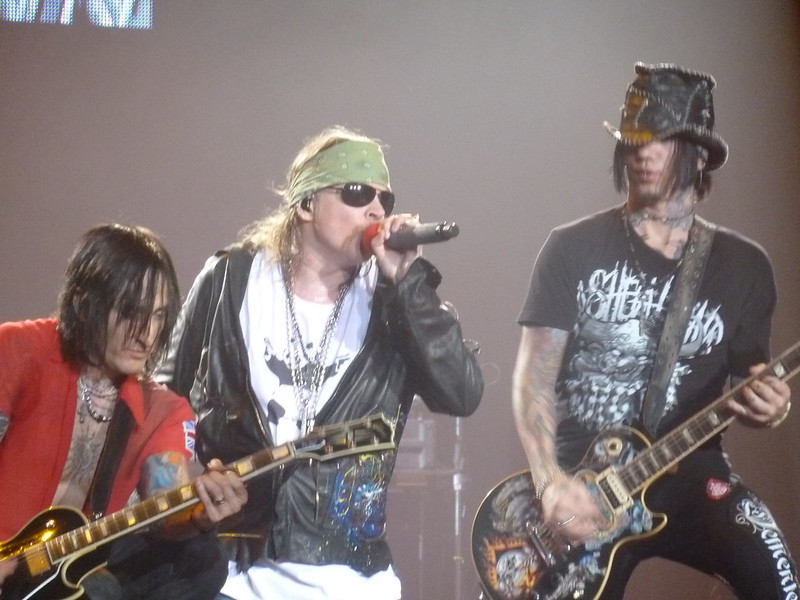
In their prime, Guns N’ Roses didn’t just rule the charts—they ruled everything. Their Use Your Illusion tour grossed over $100 million in the early ’90s, which, adjusted for inflation, would be absolutely bonkers today. While Taylor’s stadium tours feel carefully choreographed down to the last sequin, Guns N’ Roses’ shows were chaos incarnate—and people loved it. Axl Rose could show up late, rant about God knows what, and fans would still throw money at them like it was a Vegas magic show.
Fast forward a few decades, and reunion tours have kept the cash flowing. Their 2016 Not in This Lifetime tour grossed over $584 million, making it one of the highest-grossing tours ever. Licensing deals for classics like “Sweet Child o’ Mine” and “Welcome to the Jungle” are still racking up seven-figure checks yearly. Taylor’s merch game is strong, but Guns N’ Roses had people buying $50 tour shirts when that was an unheard-of price. Decades later, they’re still laughing all the way to the bank—and probably still causing a little chaos while they’re at it.
11. Queen
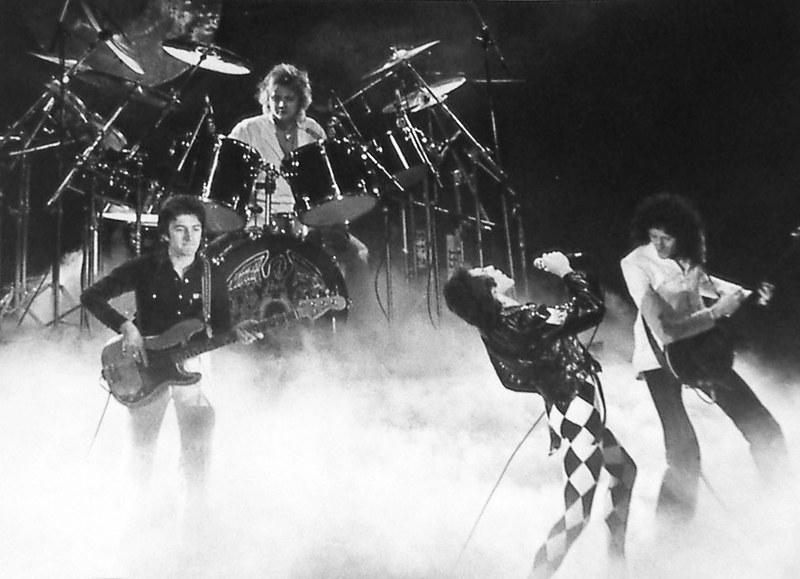
Queen didn’t just survive the loss of Freddie Mercury; they somehow got even bigger after. The 2018 movie Bohemian Rhapsody grossed over $900 million worldwide, breathing new life—and tons of money—into their brand. Plus, they sold their full catalog to Sony in 2024 for an eye-watering $1.27 billion. That single deal beat every record Taylor has broken combined when it comes to catalog sales. Queen’s music is now a licensed goldmine, popping up in commercials, movies, TV shows, sports arenas—you name it.
Even their ongoing tours with Adam Lambert have been massive moneymakers, proving that their stadium-dominating magic wasn’t a fluke. Queen merch is basically a fashion statement now, worn by everyone from Gen Z to boomers. Taylor has done a phenomenal job building an empire, but Queen’s ability to transcend time, trends, and even mortality is in a league of its own. Freddy may be gone, but Queen’s money machine is alive and kicking harder than ever.
12. The Eagles
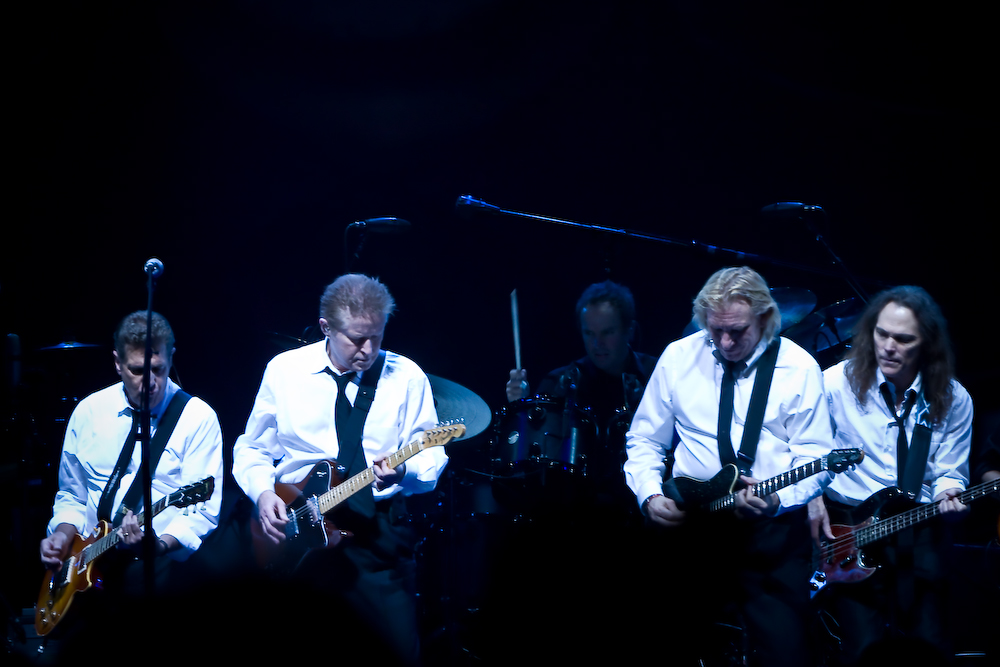
The Eagles aren’t just a classic-rock staple; they’re a financial juggernaut disguised as an easy-listening band. Hotel California alone has sold over 42 million copies worldwide and is still moving units like it’s 1977. Their Hell Freezes Over reunion tour in the ’90s grossed over $100 million, and every tour since then has stacked even more cash. Their latest “final” farewell tour (there have been several) grossed over $400 million before even finishing. The Eagles figured out that nostalgia tours sell—and they sell hard.
Every soft-rock dad who ever cranked “Take It Easy” on a road trip is part of a billion-dollar empire now. Taylor’s revenue streams are impressive, but The Eagles have made a fortune simply by showing up once a decade and playing the same hits to sold-out arenas. Plus, licensing “Life in the Fast Lane” and “Desperado” for film and TV deals brings in millions more. Smooth jams, brutal business sense—the Eagles really do take it to the limit.
This article is for informational purposes only and should not be construed as financial advice. Consult a financial professional before making investment or other financial decisions. The author and publisher make no warranties of any kind.





